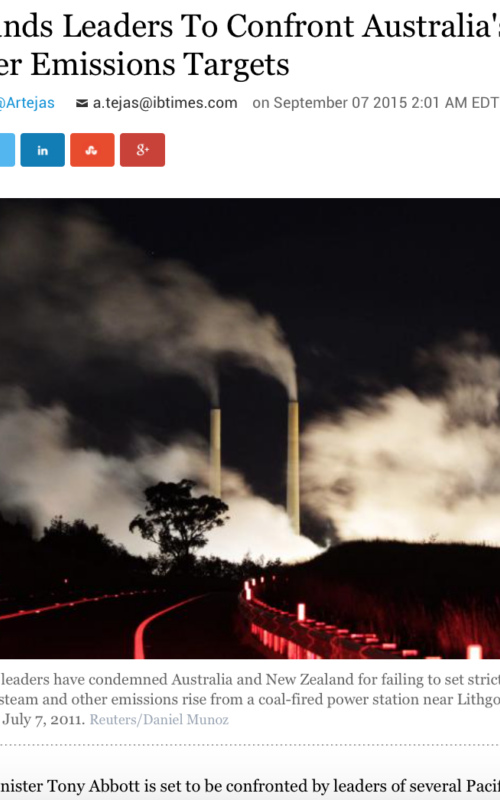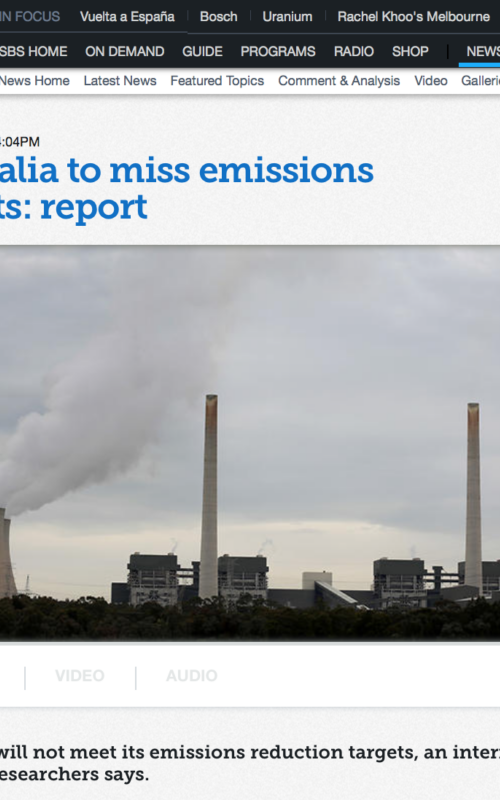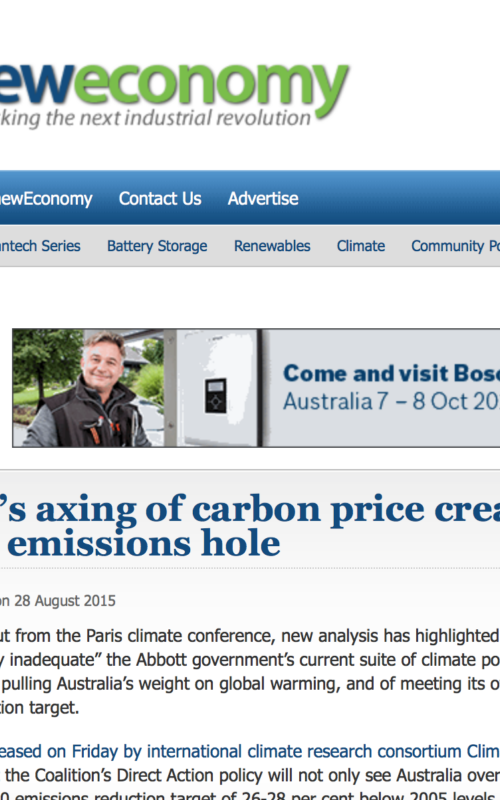Media coverage
Share


International Business Times
Australian Prime Minister Tony Abbott is set to be confronted by leaders of several Pacific Island nations who seek to take the leader to task for his stance on emissions reduction, according to Monday reports.Abbott has been accused of ignoring calls to push stronger emissions reduction targets from Pacific Island leaders, including the Prime Minister of Tuvalu, Enele Sosene Sopoaga, the President of Kiribati, Anote Tong, and Fiji's Prime Minister Frank Bainimarama, who warned that climate change caused by global rising temperatures could threaten their existence.

Deutsche Welle
So far, 57 countries have submitted their intended climate contributions ahead of the Paris conference - but their combined pledges aren't enough to keep global warming in check. Experts say more ambition is needed.

Washington Examiner
Nations' plans to reduce greenhouse gas emissions and stop global warming won't come close to curbing what many call the biggest threat of a generation, according to a new report by a consortium of research groups.

RTCC
Twenty-six countries which include Australia, Mexico and South Korea, have volunteered new carbon-slashing pledges to a global warming pact since the last round of yearly talks in December 2014. But their collective effort in reining in climate change has been negligible, said a sobering report on Wednesday by Climate Action Tracker (CAT), a collective of research institutes.

AFP via Yahoo News
Inadequate national targets for curbing climate-altering greenhouse gases meant emissions would be "far above" the level required to stave off disastrous global warming, analysts warned Wednesday.Instead of the UN-targeted ceiling of two degrees Celsius (3.6 degrees Fahrenheit) of average warming over pre-Industrial Revolution levels, the world was on track for 2.9-3.1 C by 2100, according to the Climate Action Tracker (CAT), a tool developed by a consortium of four research organisations.

Bloomberg Business
Pledges from dozens of nations to rein in carbon emissions aren’t enough so far to avoid catastrophic climate change, according to four European research centers.
Plans submitted by China, the U.S., the European Union and other top polluters won’t limit global warming to the 2-degree Celsius (3.6-degree Fahrenheit) threshold that scientists have recommended, the Climate Action Tracker coalition said in a report Wednesday.

Deutsche Welle
Climate trackers have warned delegates drafting December's Paris climate accord that the emission cuts targeted by countries will not ensure the UN's targeted 2-degree limit - saying the real figure will be higher.

Clean Technica
On August 11th, Australia submitted its Intended Nationally Determined Contribution (INDC) to the Paris Climate Agreement of greenhouse gas emission reductions by 2030 of 26-28% from 2005 levels. However, Climate Action Tracker have determined that this target is “inadequate,” and falls in the bottom half of the range of industrialized nations.

SBS
Australia will not meet its emissions reduction targets of 26-28 per cent below 2005 levels by 2030, according to research group the Climate Action Tracker.Australia announced the target ahead of the Paris talks in December.The unfavourable review rated Australia’s proposal as inadequate, and said the government’s policies would mean the target set by Australia would not be met.

Renew Economy
Three months out from the Paris climate conference, new analysis has highlighted just how “pathetically inadequate” the Abbott government’s current suite of climate policies is, both in terms of pulling Australia’s weight on global warming, and of meeting its own low-ball 2030 emissions reduction target.